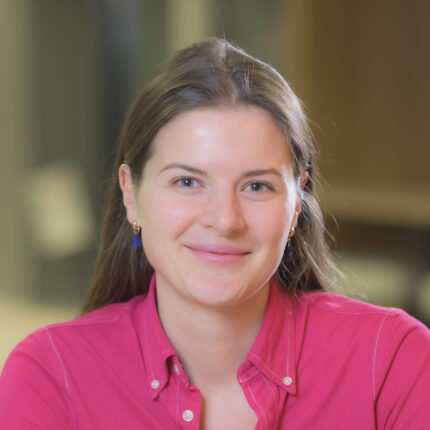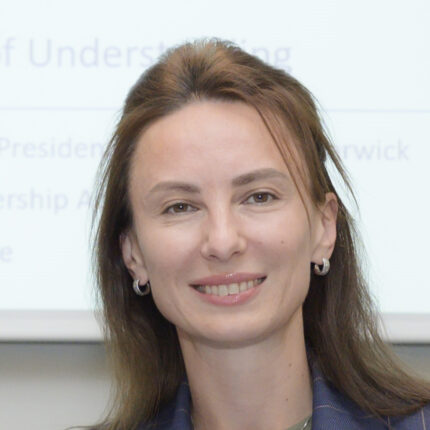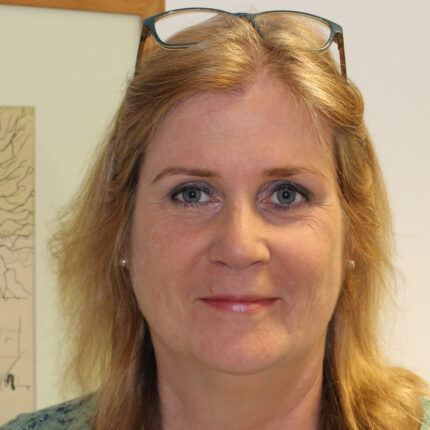As we are marking three years since the start of the full-scale invasion of Ukraine and 11 years since the start of the Revolution of Dignity, it is impossible not to notice the scars and the suffering but also Ukraine’s resolve to continue rebuilding, innovating and even thriving among adversity.
Support from the UK remains unwavering. President Volodymyr Zelenskyy and Prime Minster Keir Starmer have signed a 100-year partnership agreement between Ukraine and the United Kingdom with historic significance to strengthen the ties between the two nations. It includes two “pillars” with items of particular significance to the education community: Pillar 8, focused on partnerships in science, technology, and innovation; and Pillar 9, focused on harnessing socio-cultural ties. These two pillars outline the development of new and the strengthening of existing links between higher education institutions and academic communities. It is this kind of constructive collaboration that creates hope against a background of the recent volte-face of the US towards Ukraine.
Twinning and British Council
Building on the success of the HE Twinning scheme, launched at the start of the full scale invasion, led by Cormack Consultancy with support from Universities UK International (UUKi), the 100 year agreement seeks to twin 100 schools in Ukraine and the United Kingdom to establish partnerships between learners and educators in secondary and primary education.
The British Council, a key funder and supporter of many educational initiatives, will continue to organise English language courses for Ukrainian civil servants and contribute to the professional development of English language teachers. In a more directed effort, the British Council has funded expertise exchange visits for senior leaders from Ukrainian universities to UK universities, and repeat-funded collaborations coming forth from such visits.
In our own case at Warwick, the visits from senior colleagues from V.N.Karazin Kharkiv National University have led to a flourishing research and expertise exchange on developing new forms of teacher training, educational leadership development, and trauma informed teaching and leadership practices. An international conference later this year will allow others in the HE sector to benefit from the insights the collaboration has brought forward.
Building leadership capacity for educational reforms
The UK has also made a commitment to “support education recovery and reform ambitions through policy exchanges, technical assistance, leadership training, education partnerships, and sharing best practice including on funding systems.” Warwick’s Leadership for Educational Transformation (LET) programme, founded in partnership with the Ukrainian Leadership Academy, has showed the significance and impact of such programmes on individual educational leaders as well as on building the cadre of educational leadership in Ukraine.
Programmes such as the Leaders of University Transformation for Ukraine’s Reinvention (LUTUR) Programme and the Training Programme for Academic Managers due to start in April 2025 have also sent significant ripples across the community. Under the 100-year partnership, British universities are also expected to expand educational offerings in Ukraine, including through pilot projects in transnational education.
Science, innovation and entrepreneurship
There is a commitment to “seek opportunities to collaborate in science, technology and innovation” including interest in developing AI and its related governance and regulation, building on Ukraine’s advancement in e-governance, transferring the experience into the gov.uk wallet (with, for example, an initial move to a digital driving licence).
Higher education in Ukraine is growing its stake in the rebuilding of the country and in innovation. There are many lessons that can be learnt from the UK experience, and indeed, thanks to the UK International Development and the Good Governance Fund, Kyiv Aviation Institute (KAI) will become one of the first universities in Ukraine to establish a science park, paving the way for the universities to become hubs for innovation where science, industry and education will join forces to develop Ukraine’s innovation potential. Having officially presented the concept of KAI Science Park at the end of January as part of the Win-Win 2030 strategy KAI will focus its research in deep tech, remotely piloted/unmanned aerial vehicles), cybersecurity, defence tech, AI, machine learning, materials, robotics and engineering.
There is also much to exchange in the entrepreneurship education space. Whilst the UK has some incredible success stories around knowledge transfer, student and regional entrepreneurship development, the European Startup National Alliance (ESNA), in 2024 ranked Ukraine fourth among 24 European countries (after Lithuanian, Spain and France) exceeding the average by 12 per cent for supporting start ups, enabled by its sophisticated digital ecosystem.
Other partnerships between the academic communities mentioned in the two pillars include space, increasing diversity in science, and particularly focusing on women in STEM, women’s rights more broadly, student mobility, sports and culture, youth programmes.
Of critical value is also medicine and healthcare innovation. As Ukraine faces unprecedented medical challenges due to the war, there is a pressing need to build expertise in hospital management, medical training, and rehabilitation – fields that remain underdeveloped. Collaboration between universities, research institutions, and healthcare professionals can lay the foundation for new academic programmes, joint research initiatives, and knowledge exchange in areas such as med tech, mental health, and especially trauma treatment.
A journey of 100 years
From our own experience working on the LET programme, we have seen the sense of purpose colleagues experience from collaborations between Ukrainian and UK institutions. Moreover, following Brexit and the current recasting of geopolitical alliances, the UK’s commitment to contributing positively to Europe may look different than before, but this is a prime opportunity to renew our commitment to prosperity and peace on the continent. With the financial squeeze on many UK institutions, we must also remain pragmatic as securing projects, funding and commitments is becoming harder. Seeking opportunities for win-win collaborations will be the way forward.
For instance:
- Exchanging guest lecturing opportunities to offer different perspectives in the classroom and support each other with developing international ties, presence and impact.
- Mentoring on all aspects of academic careers, building on the success of Science for Ukraine.
- Co-developing and seeking out Ukrainian cases to be used in the curriculum. The Ukrainian Catholic University Center for Leadership, for instance, champions and disseminates Ukrainian leadership research.
- Exchanging data access opportunities to build mutually beneficial research dissemination partnerships.
Education has always been and will remain a catalyst for peace, and unity during tough times can help to nurture hope. Educational partnerships are making a tangible difference. And whilst there are many challenges ahead of our two education communities, the shared commitment to building resilience outlined in the 100-year partnership makes one thing clear: we must continue standing with Ukraine, as there is much to be done and to be gained from working together.
In 2024 the authors coordinated a series on Ukraine, the UK and higher education on Wonkhe: you can see all the articles in the series and our coverage of the conflict in Ukraine here.














